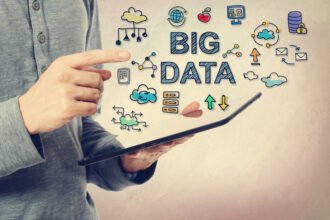The emergence of Big Data has forever changed the face of business. With so much information available, business decisions in areas like marketing and advertising have the potential to be informed by data, but still rarely are. This is due to a disconnect between available data analysis and how it’s relevant to an executive’s use case. Executives end up relying on others in their organization to pull the right data, run the right analysis and have data engineers and analysts draw the correct conclusions for complex business questions.
The emergence of Big Data has forever changed the face of business. With so much information available, business decisions in areas like marketing and advertising have the potential to be informed by data, but still rarely are. This is due to a disconnect between available data analysis and how it’s relevant to an executive’s use case. Executives end up relying on others in their organization to pull the right data, run the right analysis and have data engineers and analysts draw the correct conclusions for complex business questions. The greater the distance an executive has from the data itself, the more the promise of Big Data fails to live up to the hype.
Harnessing data’s power requires access to tools that deliver answers to our questions. A business person does not want to learn about data, nor do they want to learn how to use a tool. They just want answers. Despite the market full of business intelligence and data analytics products, not one is hitting the mark.
Take marketers, for example. In order to make informed decisions, they need to consider various consumer data such as media consumption habits, brand engagement on devices and buying habits. For each category, there are many datasets that need to be consulted. Getting over the first hurdle means knowing which datasets to consult, and this requires specialized skills and training. Next, data from multiple sources needs to be combined together and the proper algorithms applied to get to a numeric answer. Finally, the results need to be interpreted and visualized or presented in a way that others can understand and act on. Marketers should not have to be database experts, visual designers and statisticians just to get answers to their questions.
We must rethink the way data is engaged. The tools available today fail because they are cumbersome and complicated. Instead, we need tools with an ease threshold comparable to Google. If something is harder than running a Google search, we cannot expect a broad audience of business users to adopt it. And without broad adoption, Big Data will fail to make its true mark on the business world.
For mass business adoption, tools need to meet professionals in their current skillset, not require them to learn a whole new vernacular. The tools must proactively indicate to users which data points are relevant to their natural language question, and then put the data into context. To the end-user, a Google search is simple. But the interface is masking very sophisticated algorithms that keep the quality and relevance of the results displayed. A Google search also doesn’t require the user to type anything more than a term to generate relevant results.
This same ease of use, accuracy and relevancy needs to be available for Big Data. Indexing may be a common data term, but the likelihood of anyone other than a data scientist truly understanding its context is limited. Instead, information should be presented how people think in conversation with each other. For example, “according to voter registration data, Pittsburghers are 21 times more likely to vote Democrat compared to the rest of Pennsylvania” is much easier to comprehend than “Pittsburghers index higher for voting Democrat compared to the entire Pennsylvania population.”
In other words, data tools must offer human-centered access to data. An example of this is conversational interfaces, like Siri, Alexa, and Cortana, but enhanced to be very smart with advanced data. This integration of virtual assistant technology, artificial intelligence and data analysis is the future of the data industry, because it makes engaging Big Data quite simple. Rather than interacting via icons or click commands, as computers are structured to do, users can access the information needed by asking a standard question or command.
We are failing our peers if those who understand data don’t work to make it accessible to all. That means thinking of data, not the way a data scientist does but like an ordinary professional looking to better inform their decision-making process. Only when Big Data becomes truly usable in the hands of the entire business ecosystem, will we see the impact it can have on our world.








